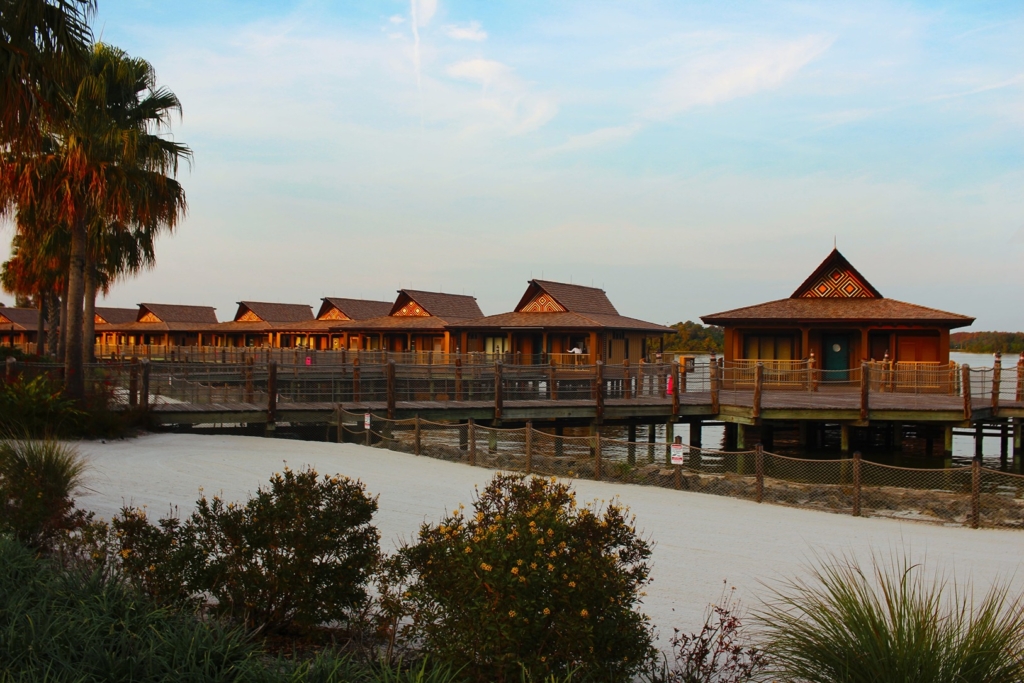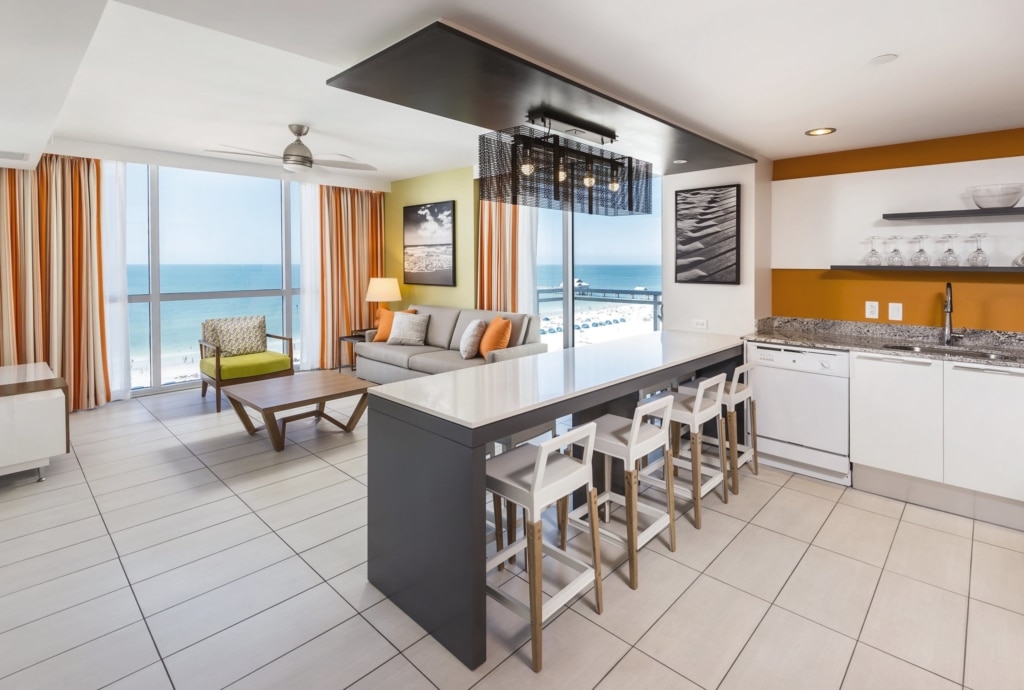Are you thinking about buying a timeshare? The decision to become a vacation owner is a big one. Questions like, “How can I get a timeshare?” “What kind of vacation ownership is best for me?” and “How do I know if vacation ownership is right for me in the first place?” must all be answered before you take the leap. That’s where we come in. With over 20 years in the vacation ownership industry, Fidelity Real Estate has the experience and knowledge to clear the air and help you buy with confidence. In this blog, we’ll tell you how you can get a timeshare, how to choose the best timeshare for you, as well as the pros and cons of vacation ownership. After you’ve leveled up your timeshare knowledge, stick around to learn how you can become a vacation owner for less with a quality resale from Fidelity Real Estate.
- How to Get a Timeshare
- How Much Does A Timeshare Cost?
- What Other Expenses Come With Buying and Owning a Timeshare?
- How to Choose the Best Timeshare for You: Arm Yourself With Information
- Types of Timeshares
- Types of Timeshare Contracts
- Types Of Vacation Ownership
- Benefits of Vacation Ownership
- Buy a Timeshare Resale With Fidelity Real Estate
How to Get a Timeshare
So, you want to start living the timeshare lifestyle? There are a few ways to become a vacation owner. In the case of deeded timeshare contracts, a timeshare may be gifted to you by the current owner. Otherwise, there are two ways you can get a timeshare. One is to buy directly from the developer. The other is to buy on the resale market. Here’s a breakdown of these three options.
Get a Timeshare as a Gift
If you’re lucky, you may not have to buy a timeshare to become an owner. Deeded timeshare owners own their shares outright. Thus, they are free to do with them as they please, including giving them as a gift.
Get a Timeshare From a Developer
Buying a timeshare straight from the developer, also known as a direct purchase or retail purchase, is what most people think of when they think of ‘timeshare sales.’ In this type of timeshare transaction, prospective buyers are often given a free weekend at the timeshare resort or other incentives to stay at the vacation property for a short time. During their stay, they’ll be given a tour of the resort property, a timeshare presentation, and a sales pitch. However, some companies, such as Disney Vacation Club, sell timeshares directly through their website in addition to the more traditional in-person sales.
Direct-purchase timeshares are more expensive than resales, but they sometimes come with benefits you won’t get on the resale market. To schedule a resort tour, you just need to check the brand’s website for openings. Once you schedule, the purchase process is pretty straightforward.
Buying on the Resale Market



When an owner wants a change of vacation scenery or lifestyle or can no longer use or afford their timeshare, they sometimes put them up for sale on the resale or secondary market. Any for-sale-by-owner timeshare, whether in a print ad, online marketplace, or facilitated by a real estate agent, is considered part of the resale market.
Buying on the resale market can save you thousands of dollars compared to buying directly from a developer. Usually, they confer most of the same benefits as retail timeshares. Certain restrictions, such as internal exchange restrictions, may apply, however. In contrast to in-person sales, which encourage you to make your purchase on the spot, resales also have the advantage of letting you take your time to find the best timeshare for your needs.
Closing on Your Resale Purchase
A developer will usually provide closing services if you purchase a retail timeshare. However, you may be wondering how closing works with a resale. As a full-service real estate broker, Fidelity Real Estate can assist you through the whole closing process, from document preparation to title and escrow services to the transfer of ownership and funds.
Financing Your Timeshare Resale
Don’t want to pay upfront? Fidelity Real Estate can also help you find financing for your timeshare purchase. Our preferred financing partners at Vacation Club Loans offer fast online approval, low interest rates, no prepayment penalty, and down payments as low as 10%. Get financed in three easy steps:
- Fill out the secure online form to prequalify.
- A Vacation Club Loans agent will contact you with a list of financing options tailored to your needs.
- Choose your desired timeshare and sign to secure financing.
How Much Does A Timeshare Cost?
The initial cost of a retail timeshare depends on a variety of factors, such as location, resort and brand popularity, season, unit size, and so on. On average, though, direct-purchase timeshares cost around $23,000 according to the American Resort Development Association (ARDA).
Resale timeshares, on the other hand, can cost thousands less than timeshares sold directly by the developer. For example, in 2024, timeshare points at Disney’s Animal Kingdom Lodge Villas cost $210.00 per point if you buy directly from Disney Vacation Club (DVC). By contrast, Animal Kingdom Lodge Villas’s resale points from Fidelity Real Estate cost an average of $106.89 per point. For 150 points, that’s an average savings of $15,466.50.

Want to compare prices on other Disney Vacation Club Resorts? Check out our blog!
What Other Expenses Come With Buying and Owning a Timeshare?
In addition to the initial cost of a timeshare, timeshare owners must pay annual maintenance fees to the timeshare developer. This is true regardless of whether you get your timeshare from the developer or on the secondary market. These fees allow the developer to offer a quality product year in and year out. They cover expenses like resort maintenance, amenity updates, employee wages, and emergencies like natural disasters. Timeshare maintenance fees vary by contract, and everything from the resort to the unit size can affect the amount. Currently, however, the average cost of annual maintenance fees sits at around $1,170.
How to Choose the Best Timeshare for You: Arm Yourself With Information
Timeshares, both on the resale and retail markets, come in a variety of types. Ultimately, choosing the best type of timeshare for you is highly subjective; it all depends on your needs! Below, we’ll break down the types and subtypes of timeshares, arming you with information so you can buy with confidence.
Types of Timeshares
Timeshares can be categorized in various ways. In general, however, they come in three major types of contracts (deeded, right to use, and leasehold) and three subtypes of ownership (fixed week, floating week, and points-based).
Types of Timeshare Contracts
Deeded Timeshare – Deeded week contracts provide owners with a deed for a particular week at their timeshare resort. An owner with a deeded week owns the timeshare outright. Therefore, they are free to sell, rent out, or give away their ownership. In the past, most timeshare ownership involved deeded weeks. Today, however, most timeshare developers have moved away from deeded weeks in favor of more flexible types of timeshares.
Right to Use (RTU) Timeshare – While a right-to-use (RTU) timeshare doesn’t involve a deed, it does involve a contract dictating how long the owner has the right to use the timeshare property. Most right-to-use contracts expire after 30 to 99 years. However, right-to-use timeshare owners may still sell their ownership on the resale market.
Leasehold Timeshare – A leasehold timeshare is not owned in perpetuity. In this type of timeshare, the developer “leases” the land on which to build their resort. Therefore, every leasehold contract at that resort expires when the developer’s lease expires. Buyers who sign a leasehold contract do, however, enjoy the same usage rights and perks as other vacation owners. Disney Vacation Club is probably the best-known example of a company that uses leasehold contracts.
Types Of Vacation Ownership
Fixed-Week – For many years, the fixed-week model was the most common type of ownership. In this subtype, owners enjoy usage rights during the same week each year, with intervals usually lasting one week. If you prefer to travel to the same place at the same time every year, a fixed-week timeshare can be a good fit, as it guarantees booking in your preferred week and location.
Floating-Week – Floating weeks allow owners to select different weeks within a specified season or period to stay at a resort. When an owner purchases a floating week for the summer, for instance, they are usually able to visit their unit during any available week that falls within the summer season. A floating week offers more flexibility than a fixed week, but less than points-based ownership.
Points-Based – Today, points-based timeshares are the most popular and common type of vacation ownership. A points-based transaction involves a buyer choosing a home resort and purchasing vacation points. The number of points you’ll need to purchase depends on factors such as unit size, the season, and how long you stay. Using your points, you can choose to stay at your home resort or trade them for another resort within the brand’s network.
Want to learn more about different types of timeshares? Get the full rundown!

Benefits of Vacation Ownership
Now that you know how you can get a timeshare and how to choose the best one for your needs, let’s talk about some of the benefits of vacation ownership. Vacation ownership comes with many benefits you can’t get from a hotel or vacation home. Whether you’re looking for more space and comfort, better amenities, short- and long-term savings, or less maintenance, vacation ownership could be a good option for you.
More Luxurious Accommodations



Unlike hotel rooms, timeshare units are usually large, home-like accommodations ranging from studio suites to villas to townhomes, cottages, and cabins. They often feature spacious floorplans, full kitchens or kitchenettes, updated appliances, separate living and dining areas, private bedrooms, and master suites. You’ll find units in a number of sleeping configurations, from studios to four bedrooms and beyond, including combined and lock-off suites, making them ideal for travel groups of all sizes.
Top-Notch Amenities



Timeshare resorts usually boast top-notch amenities you can use as part of your ownership. Pools are more or less ubiquitous, but amenities can also include everything from fitness centers to restaurants to spas, to lazy rivers, lakes, marinas, beach access, ski lifts, and even full-blown water parks. Thus, you can often have a spectacular vacation without ever leaving the resort property.
Guaranteed Booking
When you own a timeshare, worrying about last-minute booking becomes a thing of the past. Many vacation clubs offer priority booking, which limits booking by non-owners during peak seasons. Not to mention, if you own a fixed week, you never have to worry about booking at all, as you are guaranteed usage during the same week every year.
Vacation Ownership Can Be More Financially Accessible Than Buying a Vacation Home
Looking for a home away from home on a budget? Vacation ownership may be the way to go. Vacation ownership is often more financially accessible than buying a vacation home. The main reason is obvious; owning a share of a vacation property is rarely going to be as expensive as owning a whole vacation property.
Moreover, with a vacation home, any maintenance issues are your responsibility. And for a home you only use once a year, staying on top of maintenance issues often requires hiring expensive absentee property management services to check up on your home while you’re away. With a timeshare, on the other hand, all your maintenance is handled by the resort and covered by your annual maintenance fees.
Finally, owning a vacation home requires that you pay property tax (if applicable in the state of ownership), pay for homeowner’s insurance, TV and internet services, and other expenses. With a timeshare, these expenses are shared among the owners and rolled into the price of your ownership.
Get More Flexibility in Where You Vacation With a Vacation Exchange Program
While some timeshare brands offer points-based ownership and internal exchange opportunities, your choice of where to stay is still limited to a handful of resorts under that brand. Today, however, most reputable brands have affiliations with vacation exchange companies like RCI or Interval International (II). When you sign up for a membership with a vacation exchange platform, you get access to thousands of platform-affiliated hotels and resorts around the world. Not to mention, vacation exchange platforms allow you to redeem your points for other types of vacation experiences and expenses, such as cruises, excursions, flights, car rentals, and more.
Buy a Timeshare Resale With Fidelity Real Estate



So, now that you know how to get a timeshare, are you ready to start living your vacation ownership dreams? Fidelity Real Estate can help you make your dreams a reality for less. As a full-service real estate broker with over 20 years of experience, accredited by ARDA and A+ rated by the BBB, our trustworthy resale specialists can assist through every step of the purchase process while providing you peace of mind along the way. Browse our massive resale marketplace today, or give us a call us toll-free at 1-800-410-8326 and let one of our friendly agents help you set up your search.
Want to sell a timeshare you already own? Fidelity Real Estate can help connect you with thousands of interested buyers from across the globe. Fill out the form below to get started!







